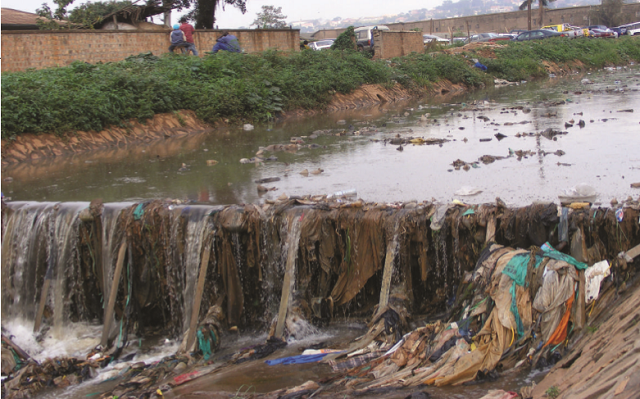
Why a Rwanda-inspired bill to broaden ban on polythene bags across East Africa might drag on forever
Plastic carrier bags could remain in use for the foreseeable future within the East African Community as debate on the East African Community Polythene Materials Control Bill, 2016 drags on in the East African Legislative Assembly (EALA).
Patricia Hajabakiga, a Rwandan MP in EALA, first sponsored this bill six years ago during the second assembly which ended without a law on polythene bags in the region coming into force.
Hajabakiga re-tabled the bill last year in the current EALA assembly which is left with about two months to wind up. But debate on the bill has since been postponed on three occasions in order to reach a region-wide consensus.
Hajabakiga’s bill aims at providing a legal framework for the preservation of a clean and healthy environment through the prohibition of manufacturing, sale, importation and use of polythene materials across East Africa.
The bill’s most vocal critics in the past have been Kenyan and Ugandan representatives in EALA.
For instance, when EALA met in Nairobi last November, Hajabakiga expected her bill to go through the third and fourth reading but it was removed from the Order Paper to “allow for consultations,” after the Kenya Association of Manufacturers raised objections to the bill.
The most recent delay was in March during the fifth session held in Kigali when Dan Kidega, the EALA Speaker, adjourned debate on the bill until the next EALA session in Arusha, in May, 2017.
This time, Tanzanian MPs insisted there is no way the bill could be passed without Tanzania’s views. Interestingly, all member countries except Tanzania reviewed the bill and provided suggestions and proposals to change in the bill.
But the rescheduling of the bill left the EAC Parliament divided with some members saying they did not understand why Tanzanian MPs called for “sufficient consultations.”
Hajabakiga declined to talk to The Independent “about East Africa’s politics.” But Fred Mukasa Mbidde, a Ugandan MP in the East African Legislative Assembly told The Independent recently that he is one of those that oppose the bill in its current form.
For decades now, disposable plastic bags have been a hot item for shoppers thanks to their cheap and lightweight nature. But environment managers across the region say littering of waste, mainly domestic waste, is the biggest challenge facing residents in many urban centres.
This is not helped by the fact that polythene waste can take hundreds of years to decompose which makes it a more visible, unsightly component of litter in the environment.
When plastic bags litter enters water streams and drainages, clogging of the public and municipal drainage results into localised flooding prompting local governments to spend millions of shilling every year to pick up this litter or to unblock the drainage systems to maintain the sanitary conditions of the area.
It is such problems associated with the use of plastic bags that many countries have begun restricting or prohibiting their use. Environmentalists say the global shift away from the use of these convenient carrier bags is clearly informed by failure even of well-established and elaborate systems put in place to collect, treat and dispose the unwanted plastics.
Scientists breed caterpillars that can feed on kavera! https://t.co/LKsZTMSl2R pic.twitter.com/OgvQLcH0Xs
— The Independent (@UGIndependent) April 25, 2017
EAC’s polythene bags dilemma
Individual governments in the East African Community over the last decade have also attempted to ban the polythene bags with Rwanda having succeeded so far.
In Uganda, the proposal to ban polythene bags first came out in financial year 2007/8 but failed but it was not until April 16, 2015 when the NEMA officials backed by the police and Uganda Revenue Authority attempted to implement the ban by raiding supermarkets, impounding thousands of pieces of polythene bags.
Yet, although a ban has officially been active since April 15, 2015, it has met several challenges, mainly from local manufacturers and importers who have insisted on having more consultations. A similar line of argument is held by regional manufacturers.
In 2011, the semi-autonomous government of Zanzibar banned the import, manufacture and use of plastic bags and encouraged the use of biodegradable materials for carrying groceries.
Last October, Tanzania also announced that it would implement a ban on plastic bags starting January, this year. The government advised manufacturers of the plastic bags to adopt new technologies of making biodegradable bags.
 The Independent Uganda: You get the Truth we Pay the Price
The Independent Uganda: You get the Truth we Pay the Price



